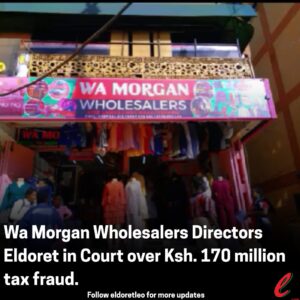
As residents of Eldoret, we’re no strangers to the concept of a broad-based government.
In fact, it’s a term that’s often thrown around by politicians, but what does it really mean, and more importantly, is it being implemented effectively in our county?
Recently, Kiman Wanjohi Huruma Ward, the minority whip in the county assembly, expressed concerns about the lack of inclusivity in Uasin Gishu County’s government.
The issue at hand is that over 96% of county employees come from one ethnic tribe, leaving minority groups underrepresented.
The Current State of Affairs
According to Huruma MCA, the county government’s composition is far from representative.
For instance, out of 10 CEC members, only one represents the minority group, whereas the constitution stipulates that at least three should. Similarly, out of 20 County Officers (COs), only one represents the minority group, whereas six should. This imbalance is a clear contravention of the National Cohesion and Integration Act, Section 7(1), and the County Government Act, Section 65.## What’s the Law Saying?The laws mentioned above are clear: no more than two-thirds of job opportunities should go to one ethnic group.
This ensures that there’s a fair distribution of jobs and representation among different communities.
However, Uasin Gishu County seems to be falling short of this requirement.
A Call for Action
Huruma is calling out the governor and other politicians to ensure that every tribe is included in job opportunities in the county.
He also proposes that the vacancy in the COs position, following a resignation, should be filled by someone from the minority group.














